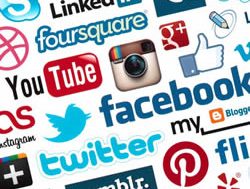Roxanne Calder* explains why having a personal brand at work matters and offers five key ways to cultivate a great one.
 Personal branding. It is not just for celebrities and influencers.
Personal branding. It is not just for celebrities and influencers.
And at work, it is not reserved for CEOs, entrepreneurs, business leaders and executives.
At first, personal branding emerged as a means of attaining career success in the context of more temporary employment systems and project-based work structures.
But now, it is more than that.
The pandemic turned our working world upside down.
It is a kaleidoscope of wants, desires, needs, and demands.
Career progression, well-being, dreams, money, purpose, flexibility and much more.
A desire for some or all of these? You need a strong personal brand.
Even if you are not a ‘career’ person, it matters.
Add remote, hybrid and flexible working with less visibility and the challenges to be heard.
Your personal brand gets you noticed and provides relevance and distinction.
Personal branding is deliberate, defined, and controlled by you.
How do you want to be seen and experienced by others? That is your brand at work, right there.
Here are 5 key ways to cultivate a great personal brand:
- Worthy intentions
What do you want to be known for?
Make it simple, be genuine and do not be all to everyone.
The theory of worthy intentions rests on authenticity and credibility and speaks of character.
The intent is the underlying psychological factor that drives your behaviour.
In the absence of worthy intentions, incongruent, mixed messages confuse and create distrust, ultimately undermining your brand.
Be your authentic self and let actions reinforce your positioning.
- Feedback
The reality.
What if the perceptions of others are not aligned with how you see yourself? You view yourself as confident, friendly and a go-getter.
Yet, your colleagues perceive you as brash and arrogant.
Developing an optimum personal brand requires constant refinement, tweaking and honest reflection.
Seek feedback from your manager and colleagues.
Do not justify or become defensive and instead look for the smallest grain of truth even when you disagree.
Not everyone will be comfortable providing observations.
Even those that do may not be totally transparent.
If serious about your personal brand, work on self-awareness.
To do so, be present, reading the signs and signals.
Nonverbal cues and sensory feedback are formidable, as you receive messages from those who are not even aware they are providing it.
Pay attention and look to patterns and trends as well.
- Network internally
It is a form of advertising! You might be the expert, but what if no one knows? It is easier to be known within your team, but outside your immediate circle is where the magic happens.
Think of going from local to ‘global’.
Introduce yourself to senior executives and the CEO.
Be seen and network up.
Attend conferences, company social activities, and mingle outside your collegial group and comfort zone.
Sit at a table where you know no one.
Make it a goal to meet 3 new people at each event and have a minimum of one connection in each department, e.g., finance, IT, HR.
If your company has lunchrooms or kitchens, use them.
It is like the ‘water cooler’ chats, but bigger, longer, and more meaningful.
Put your hand up for projects, volunteer and join social committees.
Situational experiences like these make networking easier.
- Social Media
Social media elevates, magnifies, exemplifies, and increases your visibility.
It is another form of advertising, but to the public.
Your LinkedIn profile should mirror your personal brand message, i.e., it tells your followers, readers, colleagues, and future employers what it is you can do for them.
Moving through your career, it also records your development and progress, reinforcing your brand.
Follow, share, post and comment on synergistic articles, companies and areas supporting your views, statements, and branding.
Always make it consistent.
90 per cent of employers use social media to evaluate candidates, and 79 per cent of HR professionals have rejected candidates based on their social media.
Google yourself.
Make your personal brand work for you.
- Reputation
It is the opinion of others, the proof, the truth serum and critical to your brand’s credibility.
Your reputation reinforces your brand and questions your intentions.
Whatever your personal brand is, it must always represent integrity.
Your reputation backs your brand.
So too, does everything merging with your energy.
Your career, place of work, style, hobbies and much more, all speak about the alignment and integrity of your brand.
Whether you realise it or not, you already have a personal brand.
The question is, how responsible do you want to be in shaping your image and perception?
*Roxanne Calder, author of Employable – 7 Attributes to Assuring Your Working Future, is the founder and managing director of EST10. She can be contacted at est10.com.au.











